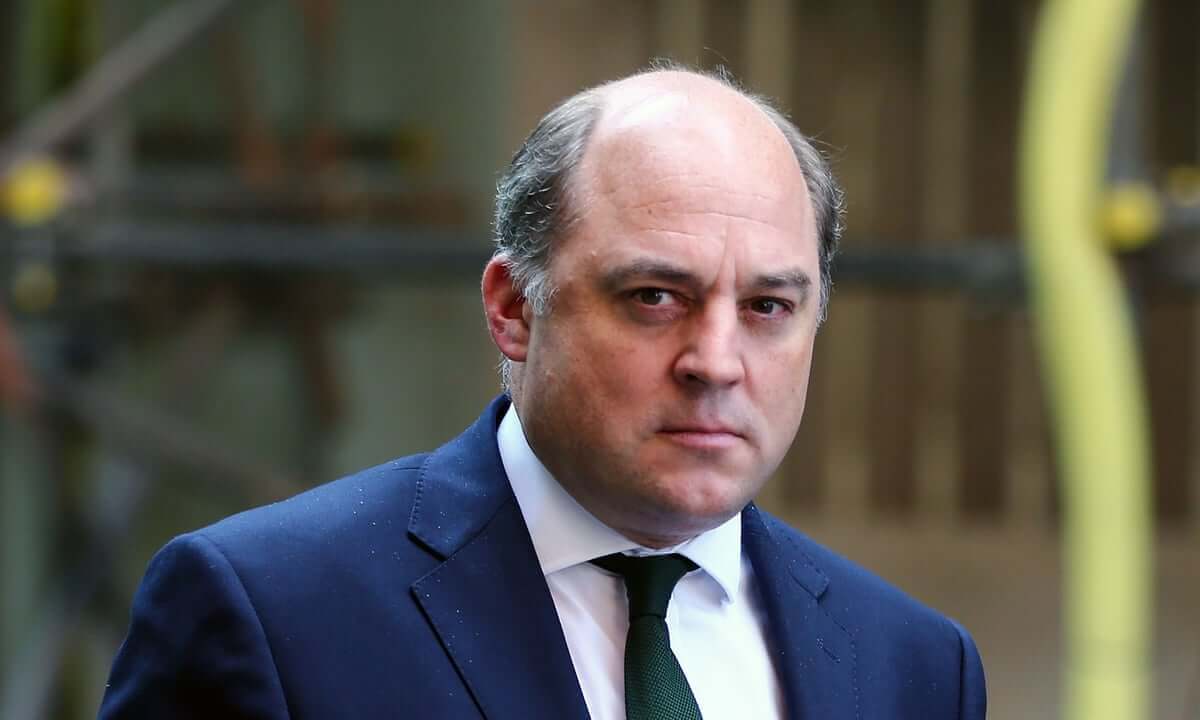British Defence Secretary Ben Wallace said that the United Kingdom (UK) will be dispatching short-range anti-tank missiles to help Ukraine counter the heightened military tensions instigated by Russia’s decision to deploy 100,000 troops along their mutual border. In addition, he said that a small group of British troops will also be sent to Ukraine to help train its security forces.
While addressing the Members of Parliament on Monday, Wallace announced a “security assistance package” that would “increase Ukraine’s defensive capabilities.” He said that the UK would provide Ukraine with light, anti-armour, and defensive weapon systems. Further, he also said that several British personnel would provide early-stage training to their Ukrainian counterparts.
However, he clarified that his announcement did not mean that the UK is trying to “rule” over Russia. He said that the support was for “short-range, and clearly defensive weapons” that would solely be used for self-defence. It would not provide Ukraine with “strategic weapons” that could pose a threat to Russia. He also highlighted that Russia merely shared 1/16th of its border with Ukraine, an ally of NATO, which has always been a “defensive alliance.”
Responding to the announcement, Ukrainian Defence Minister Oleksii Reznikov expressed his gratitude for the British government’s decision. Similarly, the Ukrainian ambassador to the UK, Vadym Prystaiko, also welcomed Wallace’s announcement, highlighting that it would help Ukraine defend itself against “the biggest army in Europe.”
Ukraine highly appreciates Britain’s decision to provide a new security package with light, anti-armour, defensive weapon systems! 🇺🇦🤝🇬🇧 Thanks to our friend @BWallaceMP for the great speech in the 🇬🇧 Parliament! pic.twitter.com/UTQf6VksaH
— Oleksii Reznikov (@oleksiireznikov) January 17, 2022
Speaking at the House of Commons, Wallace said that the Russian troops’ deployment “was not routine” as the security forces were equipped with tanks, armoured fighting vehicles, rocket artillery, and short-range ballistic missiles. This has given a “legitimate and real cause for concern” for both the UK and its allies.
He highlighted that whatever the intended use of the deployed troops, their “presence and levels of readiness” are furthering a “destabilising and coercive atmosphere” that poses the threat of conflict. He also underscored the “hardening Russian rhetoric” driven by its cyber activities and campaigns to spread disinformation, which he said was brought out during his visit to Sweden and Finland.
Previously, the UK has made several attempts to bring an end to the ongoing tensions in Ukraine by holding discussions with several high-level dignitaries. For instance, on December 21, the British Chief of the Defence Staff Admiral Tony Radakin held a telephonic conversation with his Russian counterpart, Gen. Valery Gerasimov, and highlighted the importance of furthering communication on each other’s intentions to deter any miscalculation.
Furthermore, British Prime Minister Boris Johnson spoke to Russian President Vladimir Putin to express his concern about the military build-up along the Russia-Ukraine border. The UK also participated in the Russia-NATO discussions, which ended without a breakthrough. In furtherance of the UK’s commitment to dialogue, Wallace further extended an invitation to his Russian counterpart, Sergei Shoigu, to meet with him in London and discuss their mutual security concerns.
However, Wallace clarified that while the UK was determined to peacefully resolve the conflict, it would not “reward aggression.” He reiterated the UK’s position on the conflict and extended the country’s “unequivocal support” for Ukraine’s “sovereignty and territorial integrity.”
Russia has repeatedly denied reports suggesting that its forces will invade Ukraine and has accused NATO members of supplying weapons to Ukraine and funding tensions in the region. Previously, Russian Deputy Foreign Minister Sergei Ryabkov said that it was necessary to stop Western powers from invading eastern Europe and preventing Ukraine from becoming a member of NATO. However, NATO members maintain that former members of the Soviet Union have willingly joined the alliance and were not forced into it.

